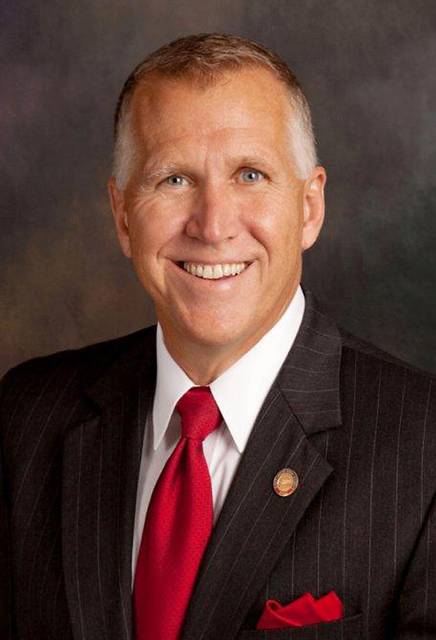WASHINGTON, D.C. – On Wednesday, U.S. Sen. Thom Tillis (R-NC) voted in favor of the SUPPORT for Patients and Communities Act, bipartisan legislation to combat the national opioid crisis. The sweeping legislation is the result of bipartisan work by five committees in the Senate and eight committees in the House of Representatives.
“The opioid epidemic has reached every corner of America and devastated communities for too long. It is heartbreaking that more North Carolinians die every day to overdose than car crashes, and it is a trend that must be reversed,” said Sen. Tillis. “This consensus legislation will help our communities fight back through education, prevention, and treatment, and I am proud Congress came together once again to combat this devastating crisis.”
In 2016, Tillis co-sponsored the Comprehensive Addiction and Recovery Act, a sweeping addiction recovery bill aimed at addressing the nation’s growing heroin and opioid addiction epidemic.
Separately, Congress has appropriated $8.5 billion this year towards fighting the opioid crisis, after the FY2018 Omnibus Appropriations bill Congress passed in March included $4.7 billion to fight the opioid crisis and the FY2019 Health and Human Services Appropriations bill Congress passed in September included $3.8 billion to fight the crisis. The SUPPORT for Patients and Communities Act will help states and communities use these funds to better address the opioid crisis.
The 10 key provisions of the legislation are:
1. STOP Act — to stop illegal drugs, including fentanyl, at the border
2. New non-addictive painkillers, research and fast-track
3. Blister packs for opioids, such as a three- or seven-day supply
4. Extends support for Medicaid patients seeking treatment from 15 to 30 days, covering all substance use disorders
5. TREAT Act — permanently allows more medical professionals to treat people in recovery to prevent relapse and overdoses
6. Prevent “doctor-shopping” by improving state prescription drug monitoring programs
7. More behavioral and mental health providers
8. Support for comprehensive opioid recovery centers
9. Help for babies born in opioid withdrawal and for mothers with opioid use disorders
10. More early intervention with vulnerable children who have experienced trauma.

